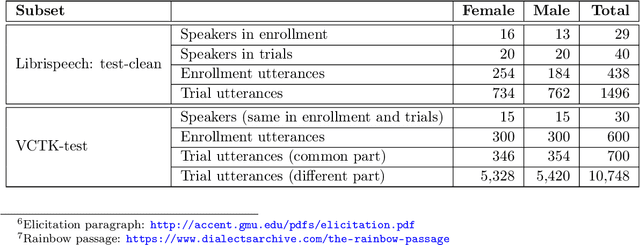The VoicePrivacy 2022 Challenge Evaluation Plan
Paper and Code
Mar 27, 2022



For new participants - Executive summary: (1) The task is to develop a voice anonymization system for speech data which conceals the speaker's voice identity while protecting linguistic content, paralinguistic attributes, intelligibility and naturalness. (2) Training, development and evaluation datasets are provided in addition to 3 different baseline anonymization systems, evaluation scripts, and metrics. Participants apply their developed anonymization systems, run evaluation scripts and submit objective evaluation results and anonymized speech data to the organizers. (3) Results will be presented at a workshop held in conjunction with INTERSPEECH 2022 to which all participants are invited to present their challenge systems and to submit additional workshop papers. For readers familiar with the VoicePrivacy Challenge - Changes w.r.t. 2020: (1) A stronger, semi-informed attack model in the form of an automatic speaker verification (ASV) system trained on anonymized (per-utterance) speech data. (2) Complementary metrics comprising the equal error rate (EER) as a privacy metric, the word error rate (WER) as a primary utility metric, and the pitch correlation and gain of voice distinctiveness as secondary utility metrics. (3) A new ranking policy based upon a set of minimum target privacy requirements.
 Add to Chrome
Add to Chrome Add to Firefox
Add to Firefox Add to Edge
Add to Edge